Mulching: a guide on when and how to mulch your garden
Mulching is one of the best ways to cut down on maintenance time and give your plants a boost – here's everything you need to know to get started
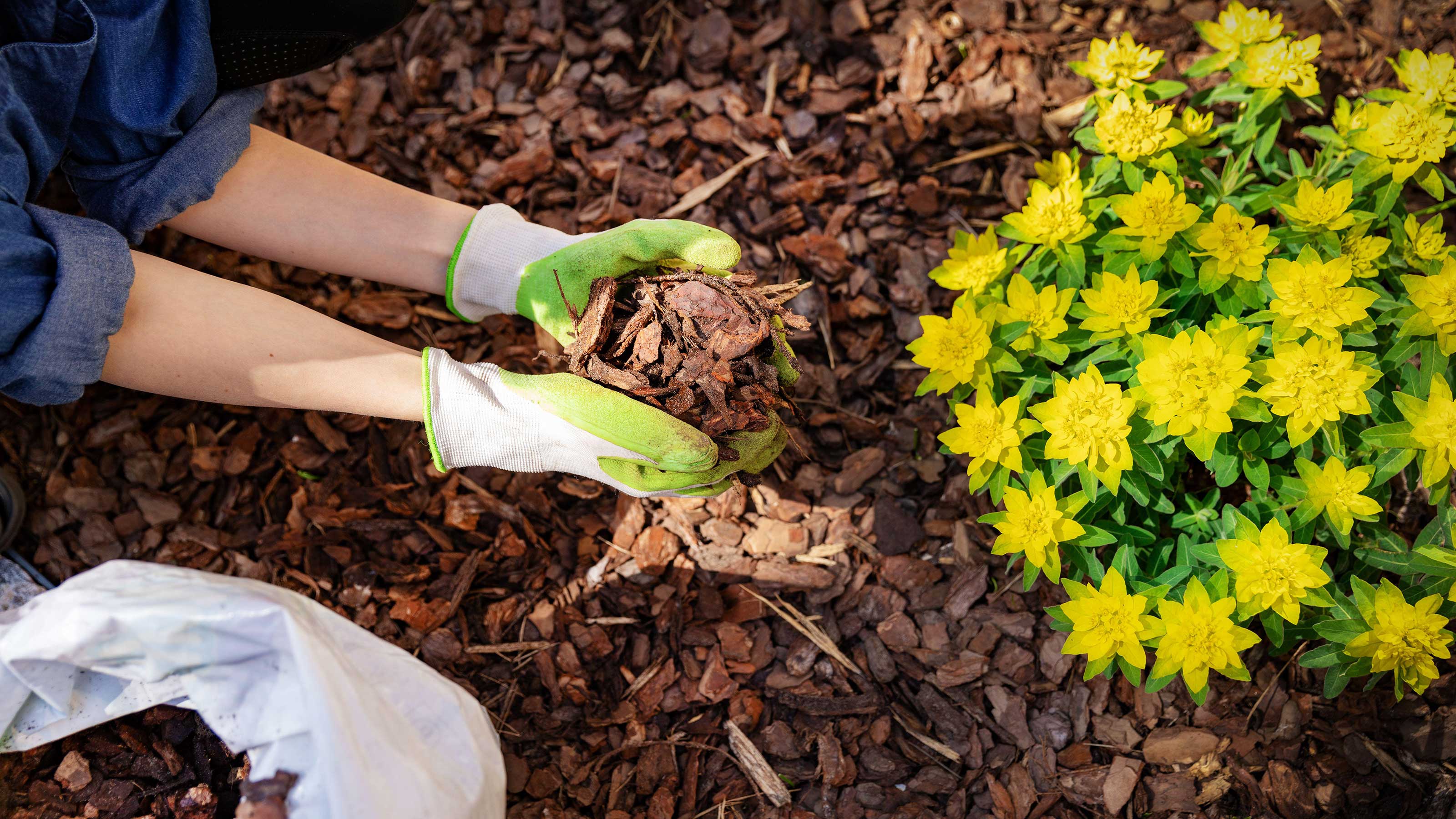

If you haven't done it before, mulching might sound like a complicated garden procedure. But rest assured, it's actually a very simple concept. All it is is adding a protective top layer to your soil. And this will bring multiple rewards – from locking in moisture and nutrients to helping suppress weeds. In winter, a biodegradable mulch can also be used to protect the roots of more delicate plants. In fact, if you do one thing before the weather gets cold, it should be this.
Mulching is even easier than learning how to compost – which in itself is straightforward. Combine the two by using compost as your mulching material, and you'll give your garden a real boost and save hours on maintenance, whatever plants you're growing. But there are other mulch options – both biodegradable and non-biodegradable – that you can try. Plus, there are plenty of handy tips to know when applying your mulch, so you can get the very most out of it.
Mulching: everything you need to know
To help you get started, we've rounded up tons of advice, including tips from the experts, on how to mulch.
What are the benefits of mulching?
Angela Slater, Gardening Expert at Hayes Garden World, explains all the different benefits of mulching.
Firstly, it's a fantastic weed suppressant, so is perfect if you're on the lookout for low maintenance garden ideas. This will help your plants get all the nutrients available, without you having to spend hours weeding.
Speaking of reducing maintenance, mulching is also good for moisture retention, meaning less time spent out with the watering can or hose. 'Saving water in the garden is a hot topic as we see less and less rainfall over the summer months,' Angela says. Plus, not only do the plants benefit from having moisture all year round but also, if you are on a water meter, you save money, she adds.
It's also useful to protect your plants, especially when the temperatures drop. 'Cutting down herbaceous perennials, then adding a good layer of mulch in late autumn, will provide winter protection to the crowns. This gives them a good start the following spring,' she says. There are more tips on how to protect plants from frost in our guide.
Biodegradable mulches will also improve your soil structure. 'Gradually the worms will drag the mulch down into the soil, improving aeration and drainage,' explains Angela. It will improve the nutrient content of the soil too. Some are more effective in this way than others, for instance whilst 'the nutrient content of chipped bark is minimal, your own home-made compost or leaf mould will add considerably to the soil nutrients and beneficial micro-fauna.'
Some mulches, such as bark chippings, are also useful at deterring garden pests. 'The rough bark of the mulch will deter slugs and snails as it is too rough to negotiate,' Angela says.
And finally, mulching can boost the aesthetic value of your backyard. 'A layer of mulch over the herbaceous borders looks tidy and colored glass nuggets covering the top of a container can be an added design feature and really make the plants stand out.'
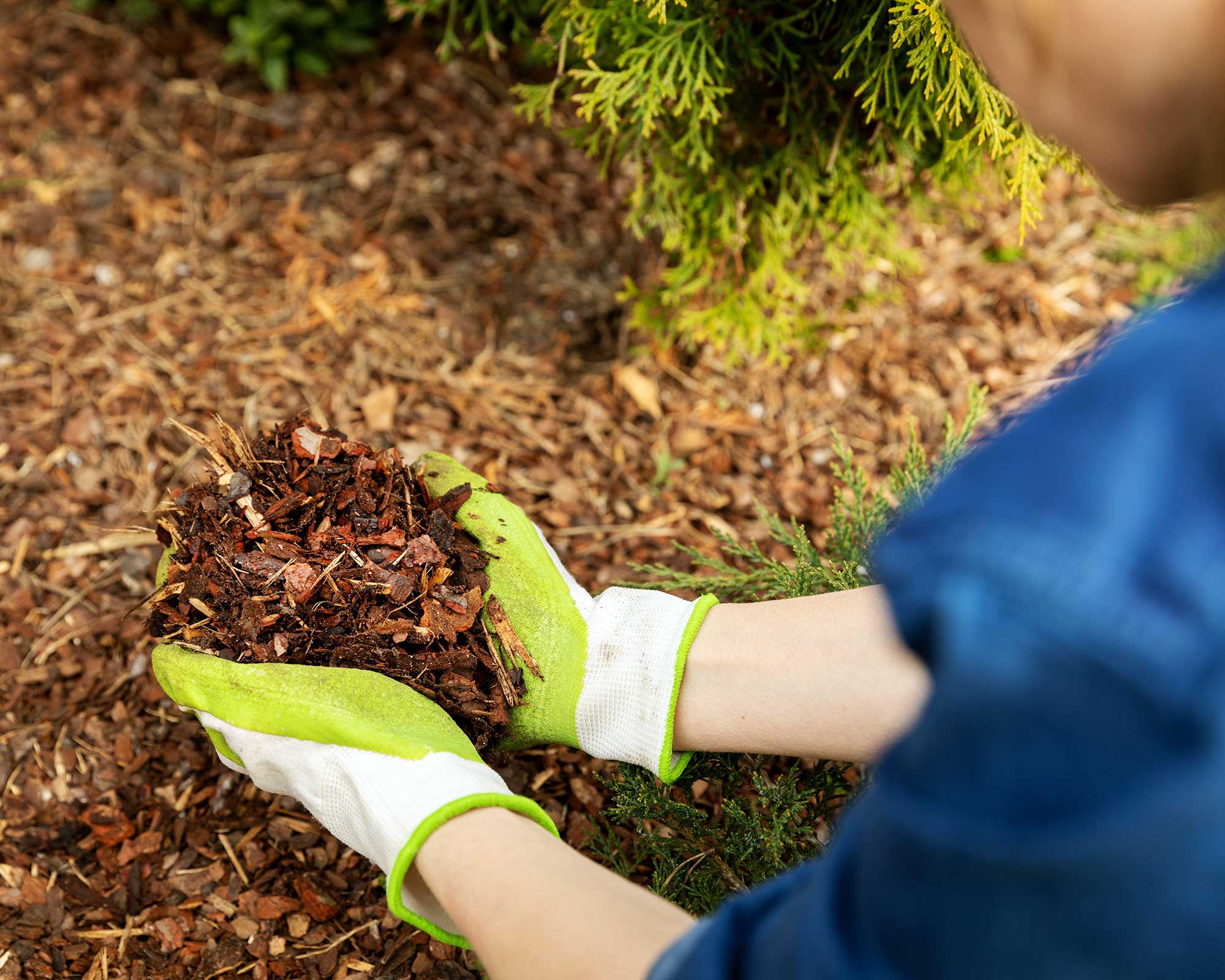
What biodegradable mulches can you use?
Biodegradable mulch is made up of natural materials. This means it will break down over time, depositing additional nutrients into the soil. Like all mulches, it will also work to keep weeds at bay by blocking the light, and help to keep the soil moist. We've listed some of the most popular varieties below.
1. Leaf mould
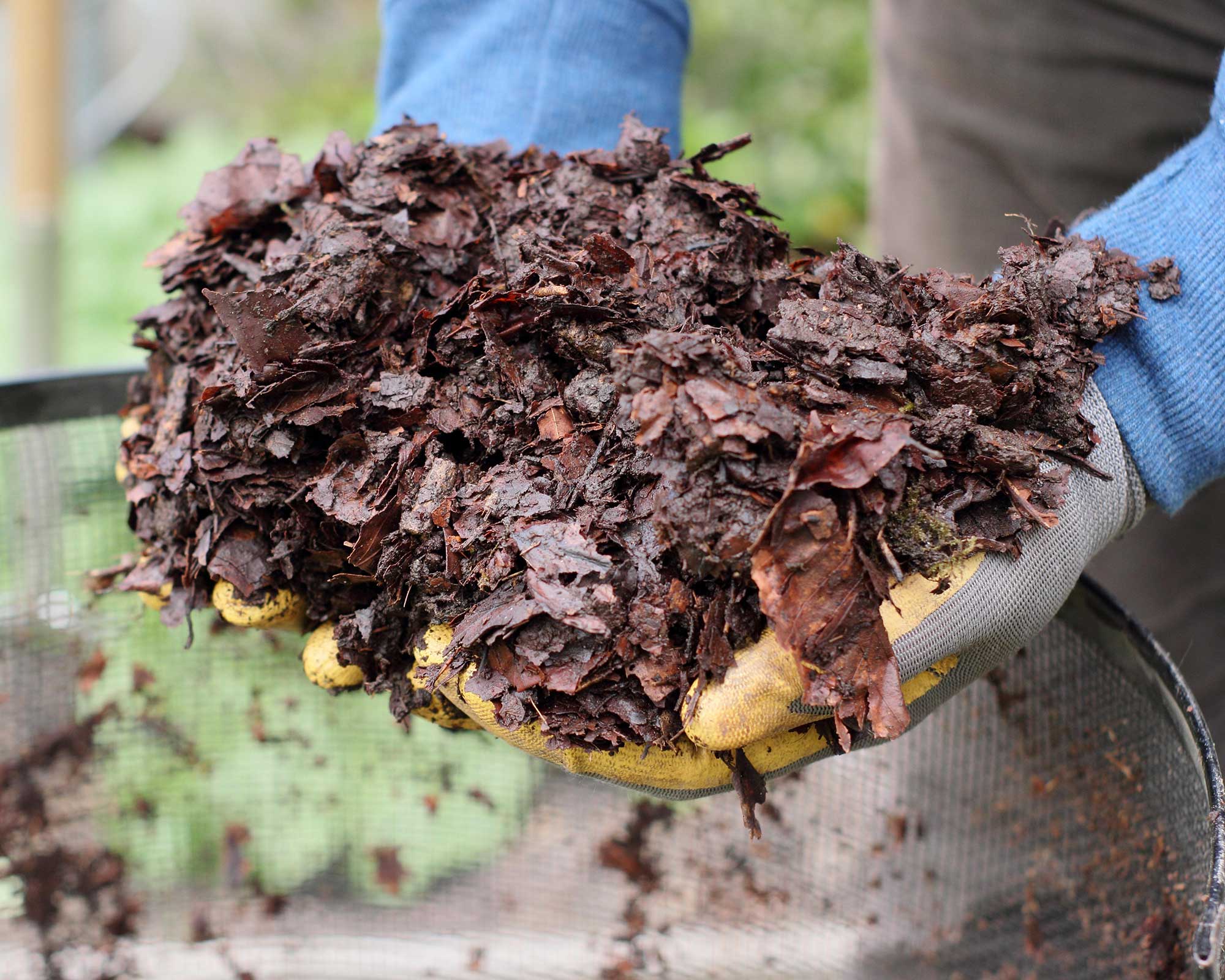
'Leaves can decompose to a third of their original bulk, becoming very rich dark brown mulch which works well for rose gardens in particular, ' says Matt Fieldwick, head gardener at Terlingham Gardens from property developer Pentland Homes. Once you learn how to make leaf mould, you'll never throw away garden leaves again.
To create a basic leaf mould, all you need to do is gather up leaves, pack them in a black bin bag with holes at the bottom for drainage and wait for them to decompose over a period of several months.
It's one of the best mulching materials around and nothing says autumn quite like the smell of leaf mould.
2. Garden compost
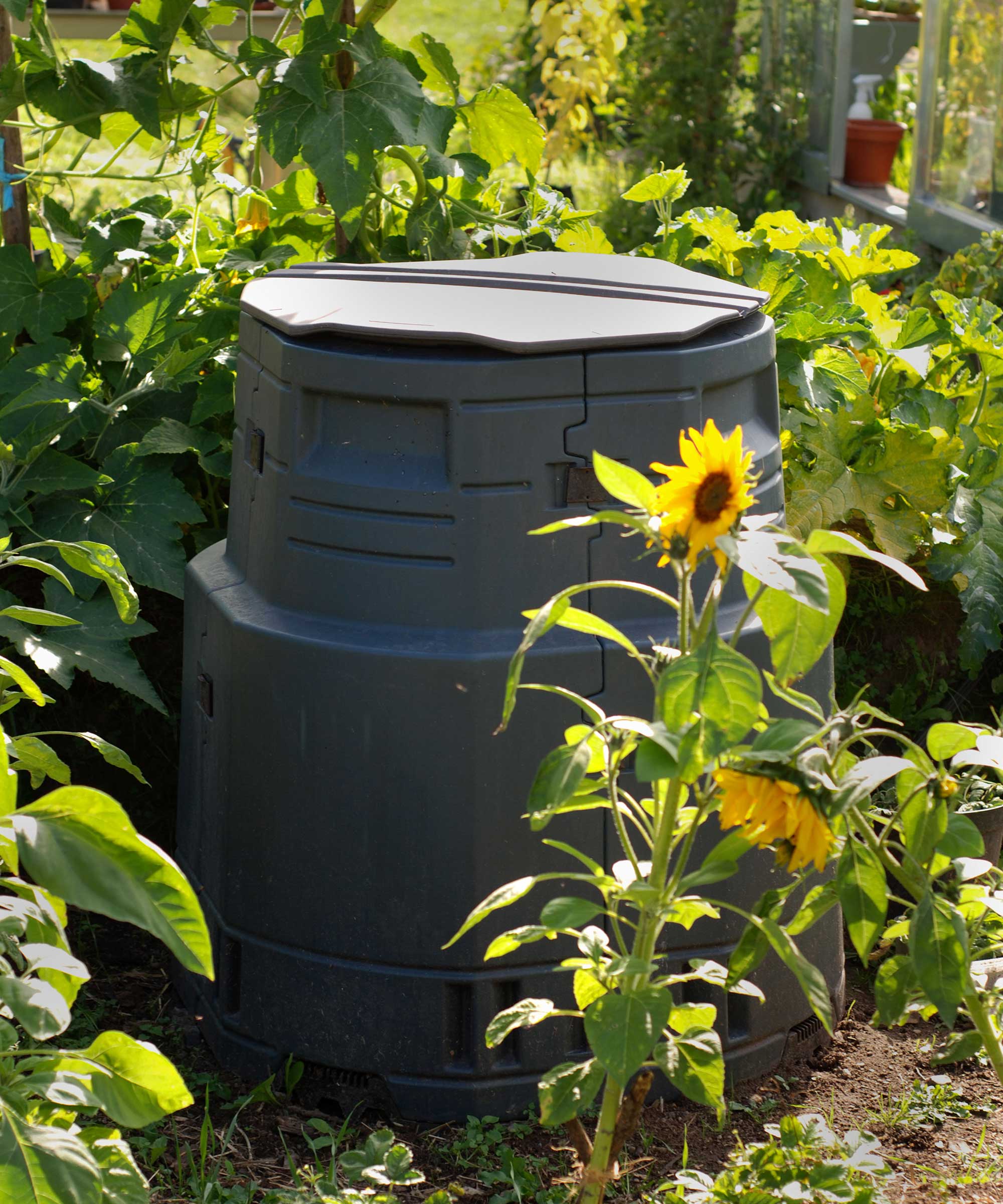
In terms of a rich and beneficial mulch for the soil, compost is hard to beat. And if you make your own, it's free!
Pile it on thickly for the best results. You can also mix in the old compost that's left over from summer pots and containers to make it stretch a bit further. Want to have a go? Our buying guide to the best compost bins will help you get prepared.
3. Mushroom compost
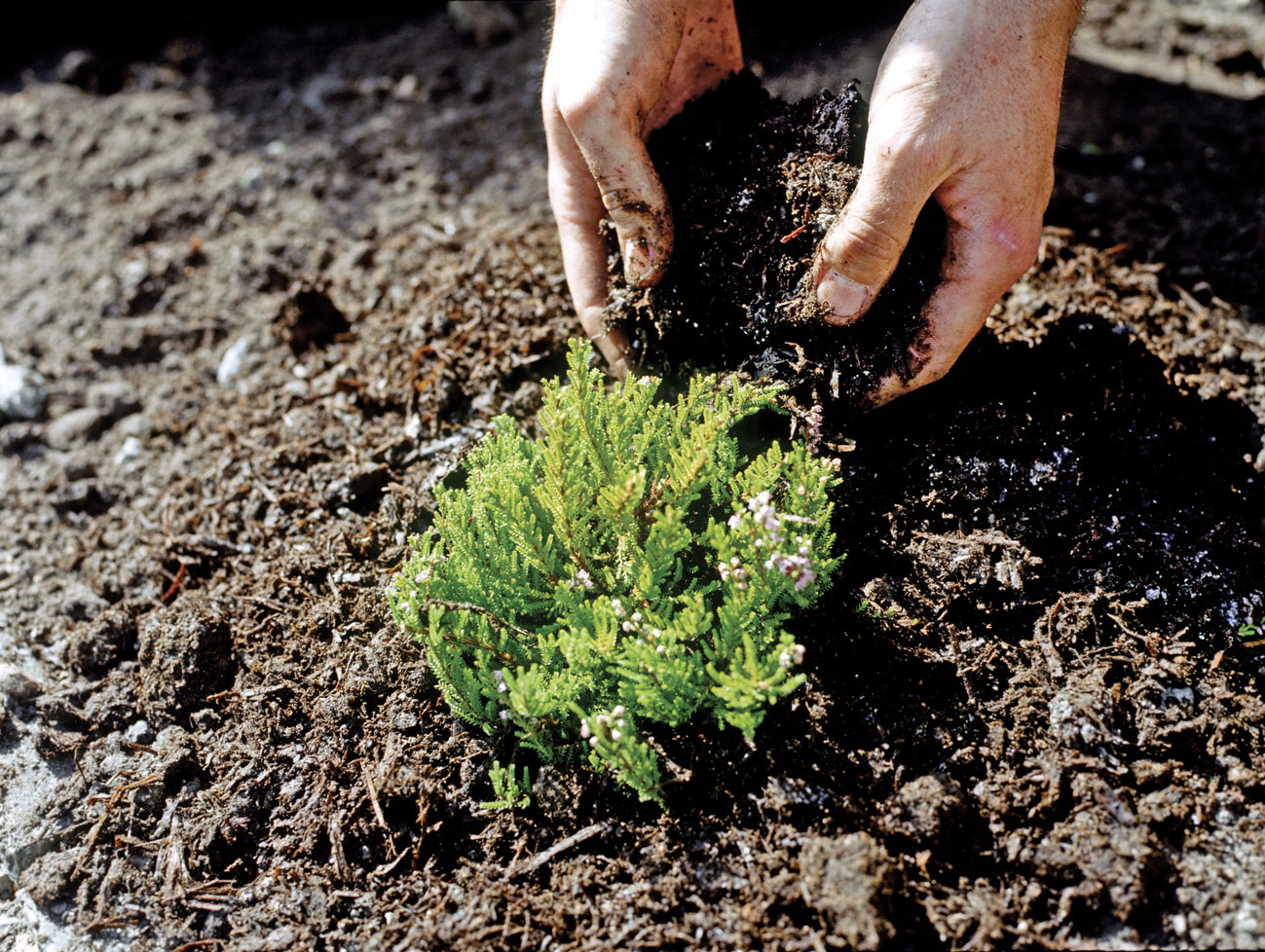
Mushroom compost tends to have been previously used for growing mushrooms and can often be bought cheaply in bulk. It is great for lightening heavy soils, but be sure to choose an organic variety to cut down on any chemicals that may be left in the mix.
However, bear in mind that mushroom compost is alkaline, so won't be suitable for mulching some fruit bushes or acid-loving plants such as rhododendrons. It is, however, a good choice for using on your vegetable crops, as says the RHS, so worth trying on your raised garden beds.
4. Straw
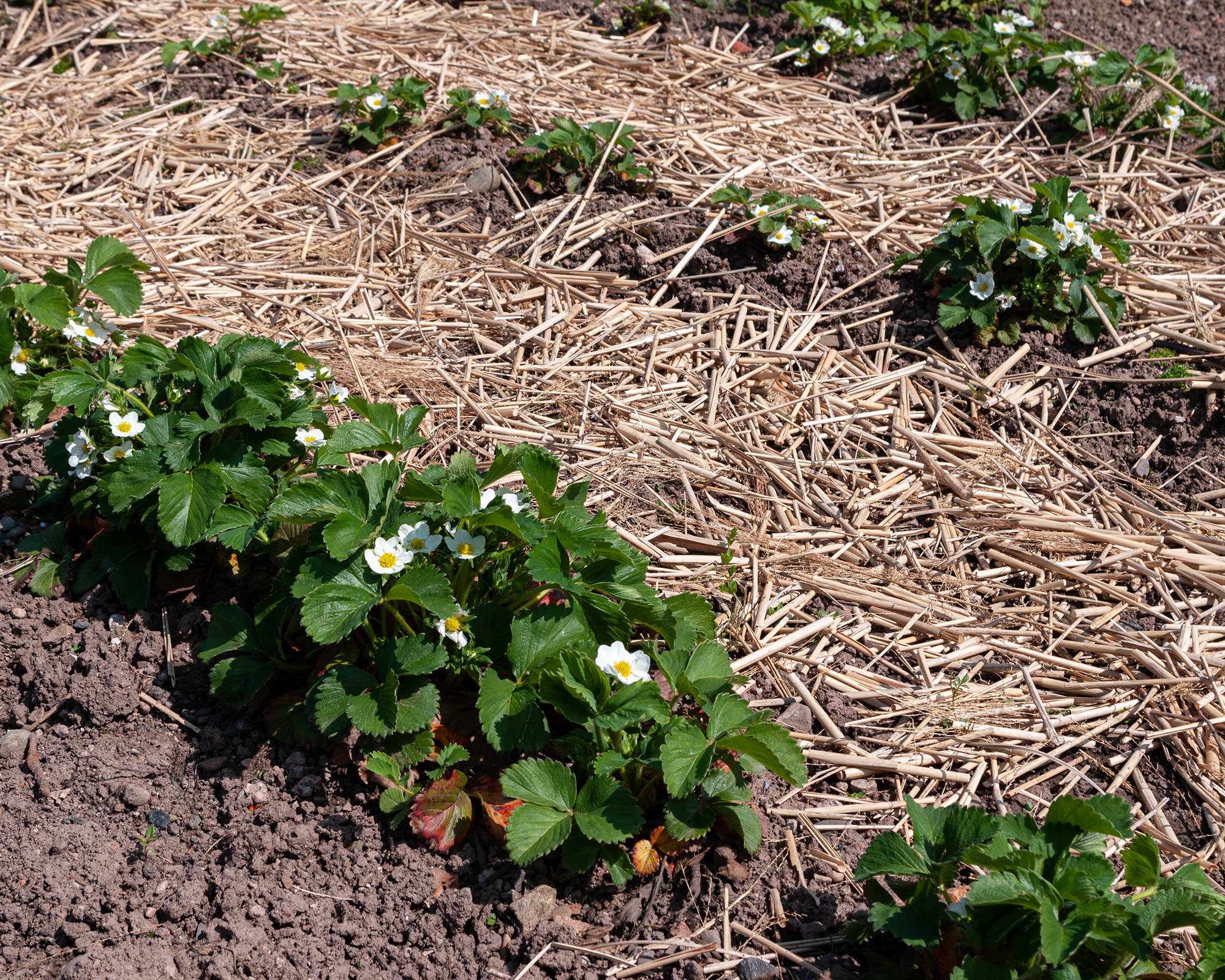
Straw is one of the best mulching materials you can use around your vegetable and fruit plants, especially if you're learning how to grow potatoes or even how to grow strawberries.
It's clean, light and breaks down relatively easily. Some straw mulches may be mixed with hay, so look for a supplier that sells guaranteed weed-free straw.
5. Cocoa shells
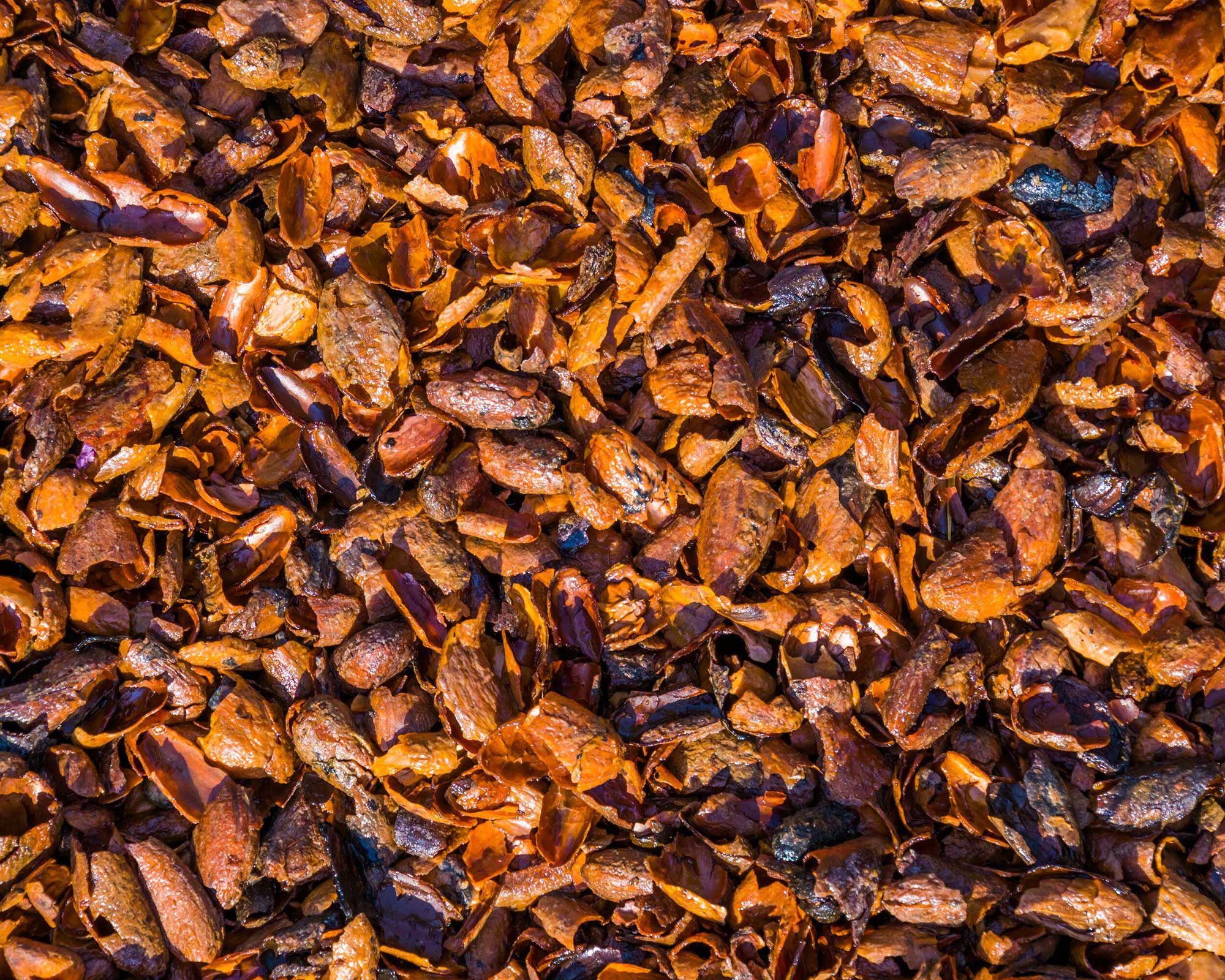
A good choice for late autumn, cocoa shells are lightweight and easy to handle, so ideal for working into heavy soil or using around plants. They contain nitrogen, phosphate and potash, which add beneficial nutrients to the soil.
Used on the surface, they remain a very attractive coppery color that looks great in winter when plants and greenery are few and far between. Bear in mind, however, that they are toxic to dogs.
6. Seashells
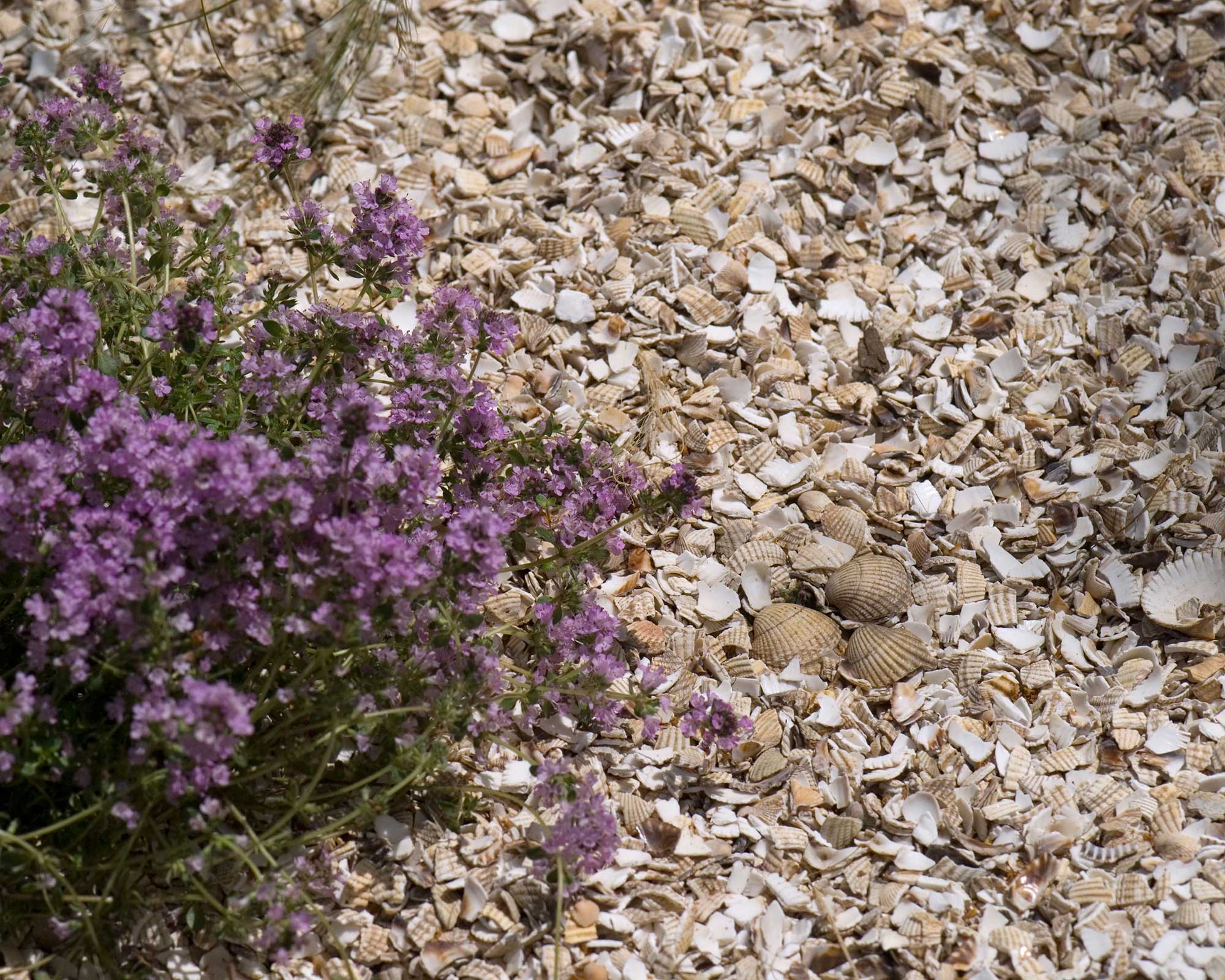
There are times when you need a decorative mulch or one that does not break down quickly. Utilizing seashells as a mulch is a great garden hack. It looks good, they add calcium and phosphates to the soil, and are also a deterrent for snails and slugs as they don't like the sharp edges.
You can find more tips on how to get rid of slugs in our useful guide.
7. Jute mats
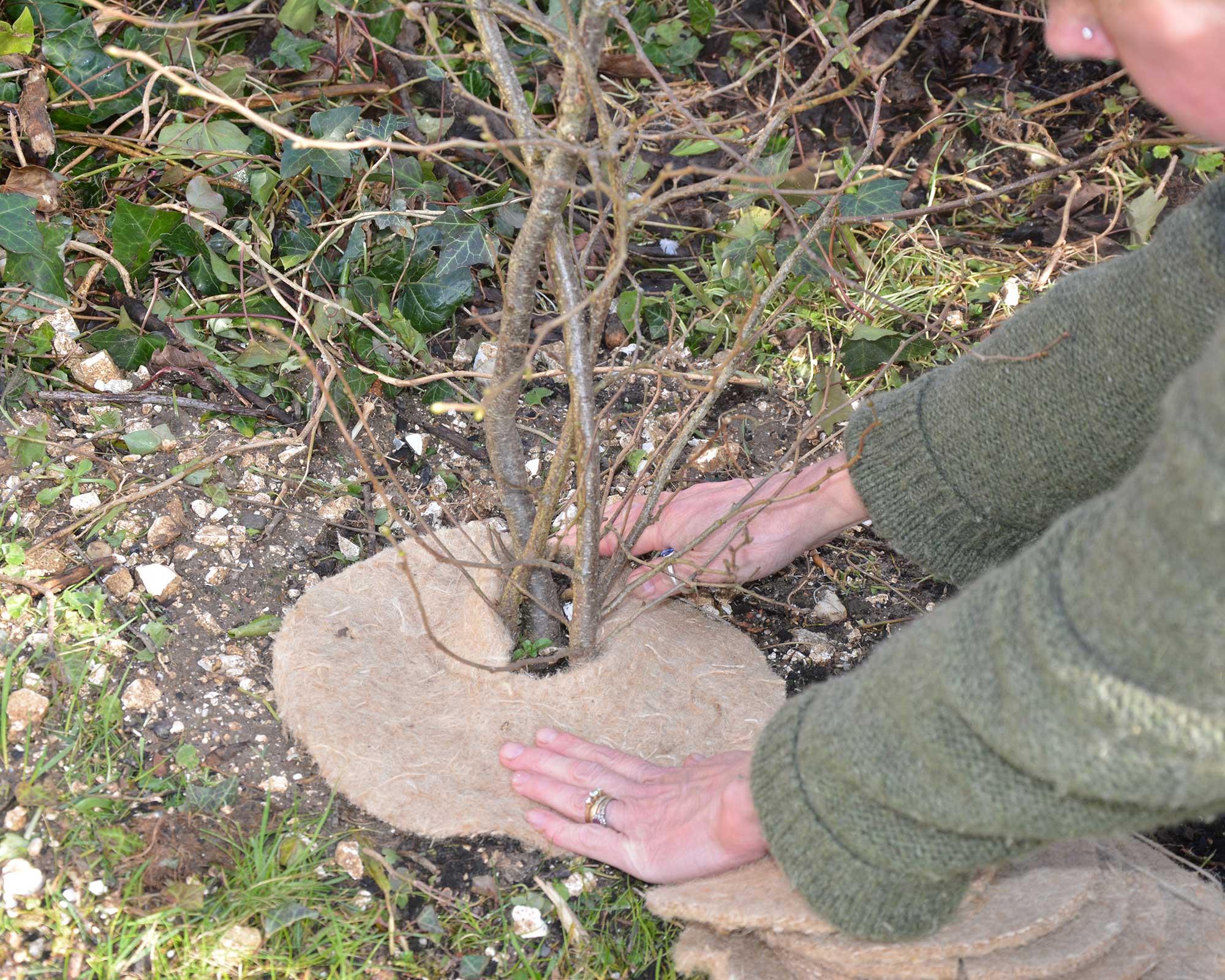
Compostable mulch mats made from recycled jute coffee sacks fit neatly into garden planters or directly onto beds. Just slot them around a plant and leave them to do their thing.
Slugs and snails don't like them, and they provide nutrients for plants as they compost down, which takes up to two years.
8. Garden shreddings
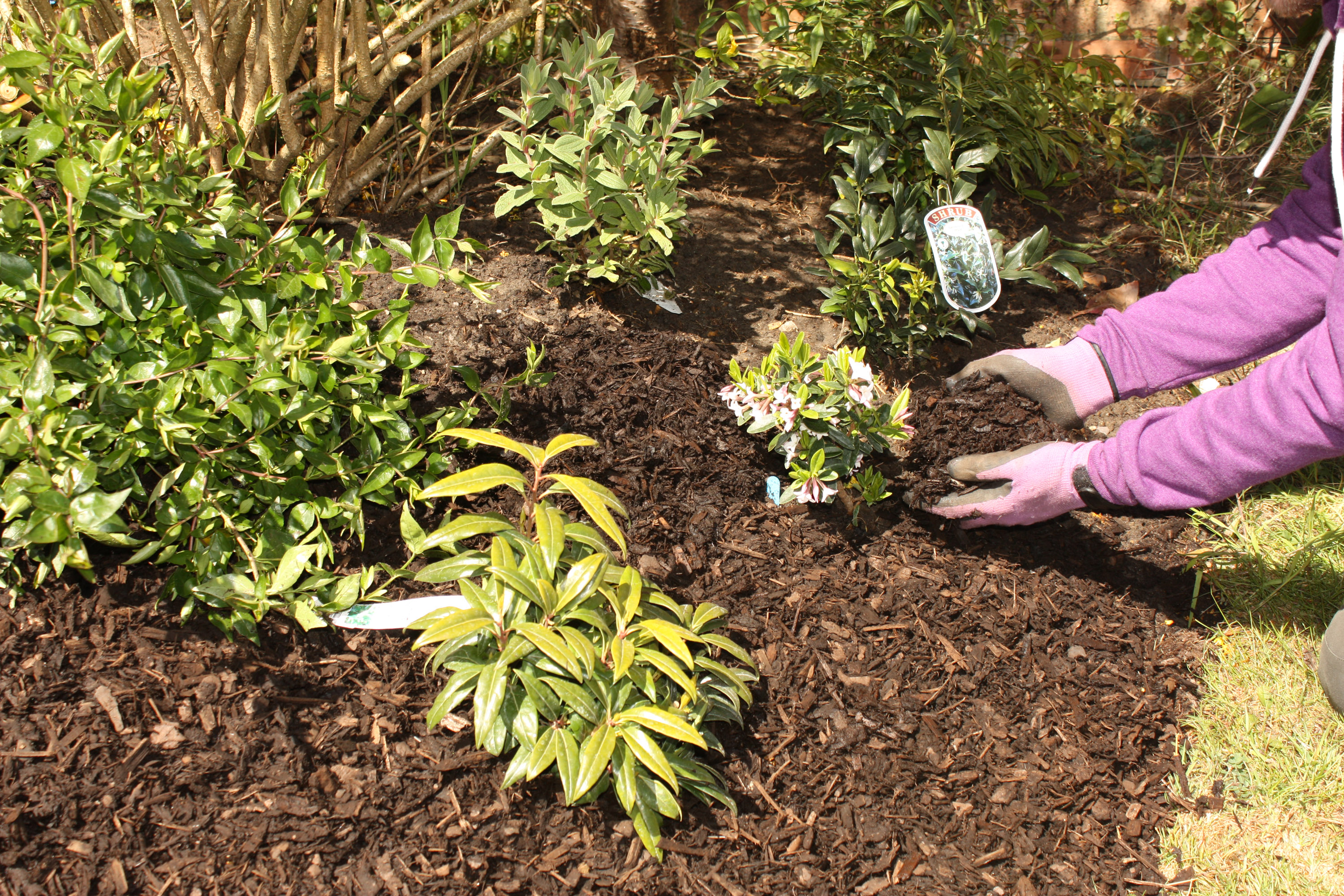
If you have a lot of trees and shrubs in the garden it might be worth hiring a shredder (or investing in one of our best garden shredders) and loading in all the prunings when you have a large enough pile.
Leave them for about three months afterwards to break down – that way they don't use up too much nitrogen from the soil when you spread them.
9. Bark chippings
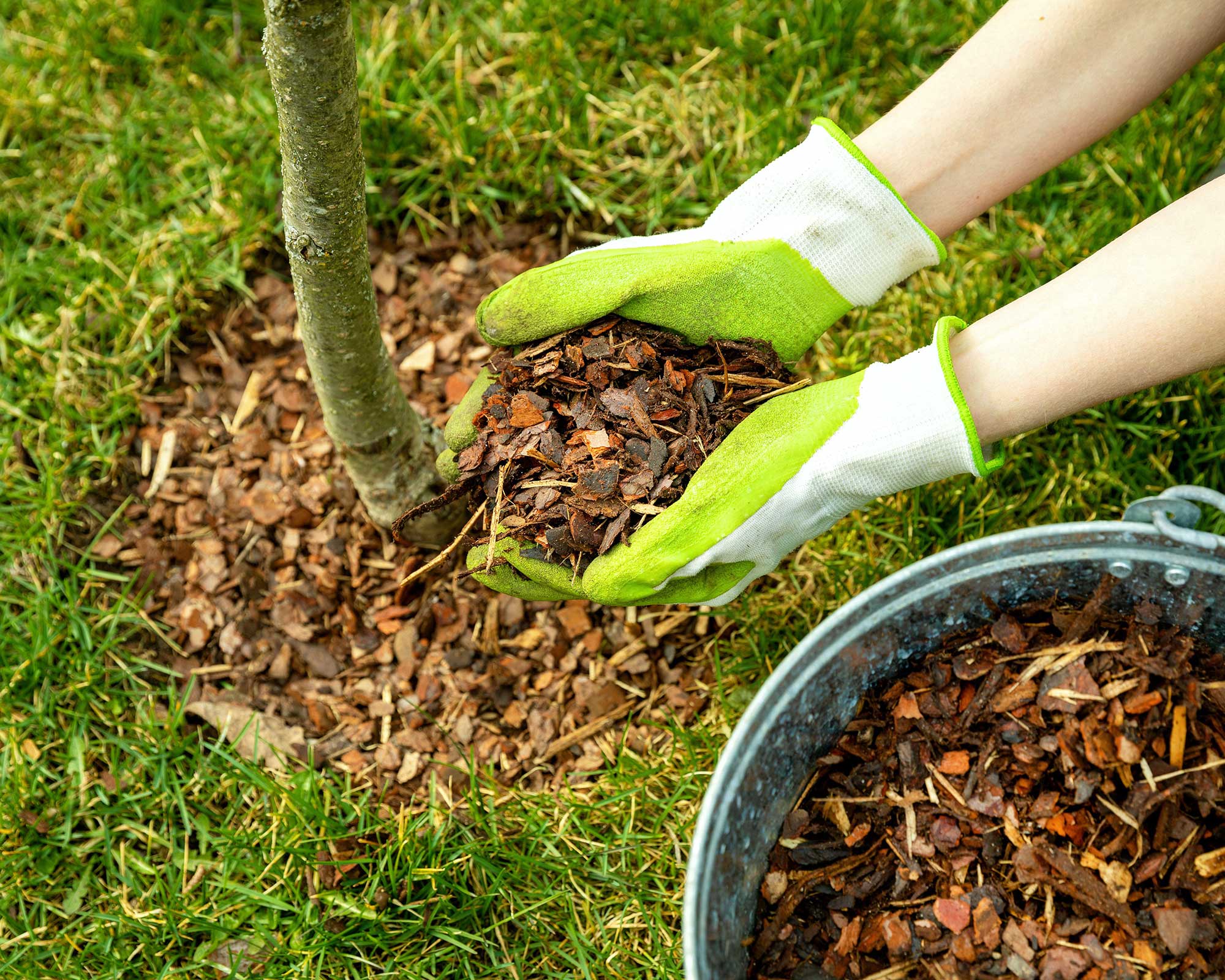
Chipped mulches add a lovely decorative element to borders, but can also be used on paths, or in pots. They are usually quite chunky and coarse textured.
They're easy to get hold of, especially as free mulch from the council – a great solution if you're after free garden ideas.
10. Grass clippings (for lawns)
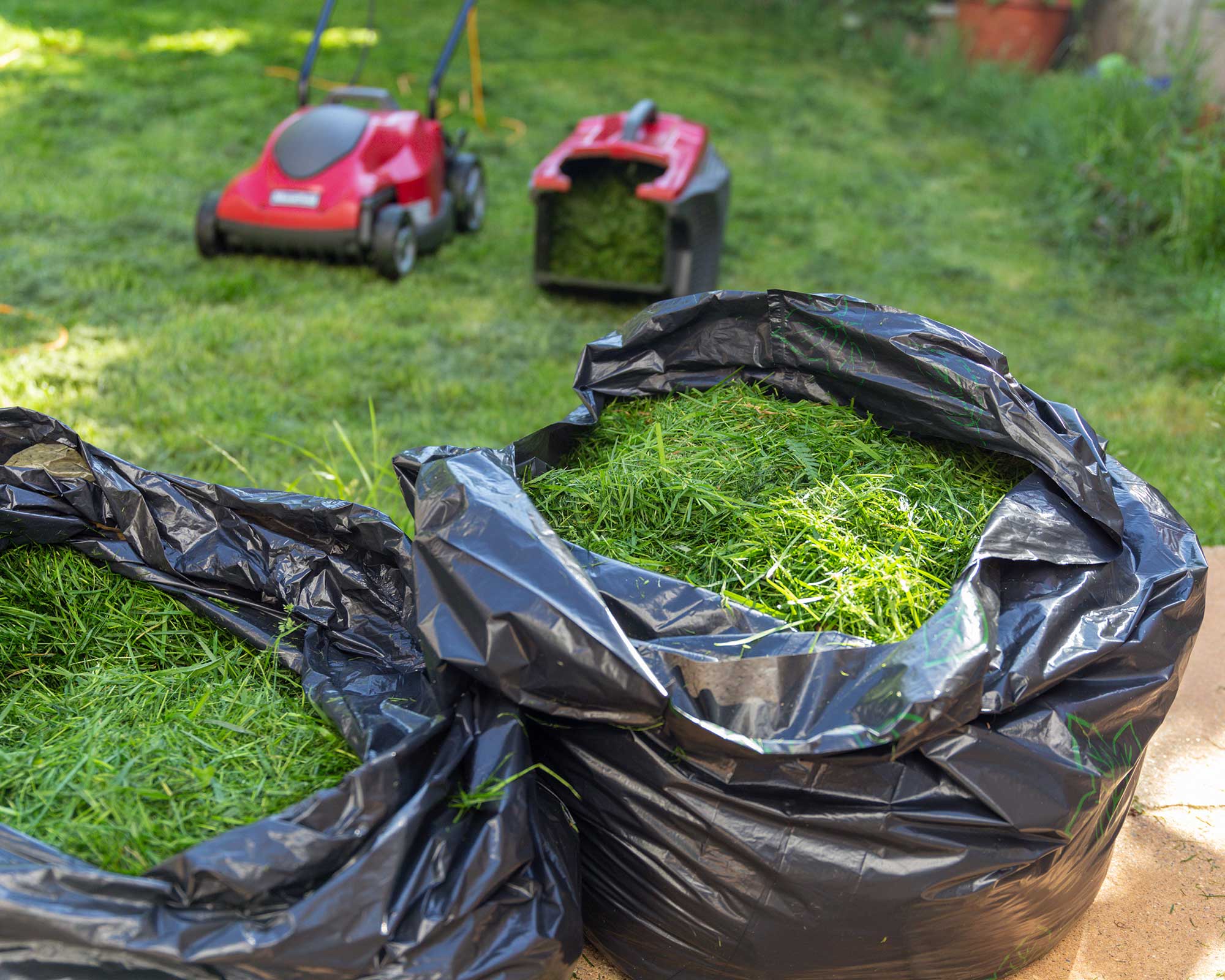
It's not just your containers and flowerbeds that will benefit from mulch – your lawn will too, as an alternative to chemical fertilizers. You can mulch a lawn just after you mow it, as explains Andy Wain, Head Gardener at Euridge Manor and spokesperson for Stihl, by chopping the clippings into tiny pieces then returning them to the turf.
'As the grass clippings decompose they add vital nitrogen back into the lawn,' says Mark Lane, QVC's Gardening Expert. Some mowers have a specific mulching function which makes it super simple to do.
It is, however, very important to ensure that your lawn is weed-free before you do this, to avoid escalating the problem. Our guide on how to get rid of lawn weeds is full of practical advice.
What non-biodegradable mulches can you use?
Non-biodegradable mulches include landscape fabrics and, more controversially, black plastic sheeting. Neither are as attractive in a garden setting as biodegradable mulches but can be more suitable for the veg patch, or where you need to clear a patch of ground of grasses and perennial weeds before planting into it later on.
Although non-biodegradable mulches suppress weeds (arguably even more effectively than their biodegradable counterparts) and help to retain moisture, they can't play a part in enriching the soil as they don't break down. There are now a few biodegradable options on the market, though, that can be used in the same way but are then dug into the soil at the end of the growing season.
What mulches like landscape fabrics and black plastic sheeting do very well is warm the soil in spring ready for the first fledgling vegetables to be planted, and then retain heat throughout the season – useful when you're growing crops like aubergines and chillies outdoors.
Other non-biodegradable mulches are ideal for adding to the tops of compost in pots, again to help retain moisture and keep weeds at bay. These include slate or stone chippings, pebbles, smooth pieces of glass, and gravel.
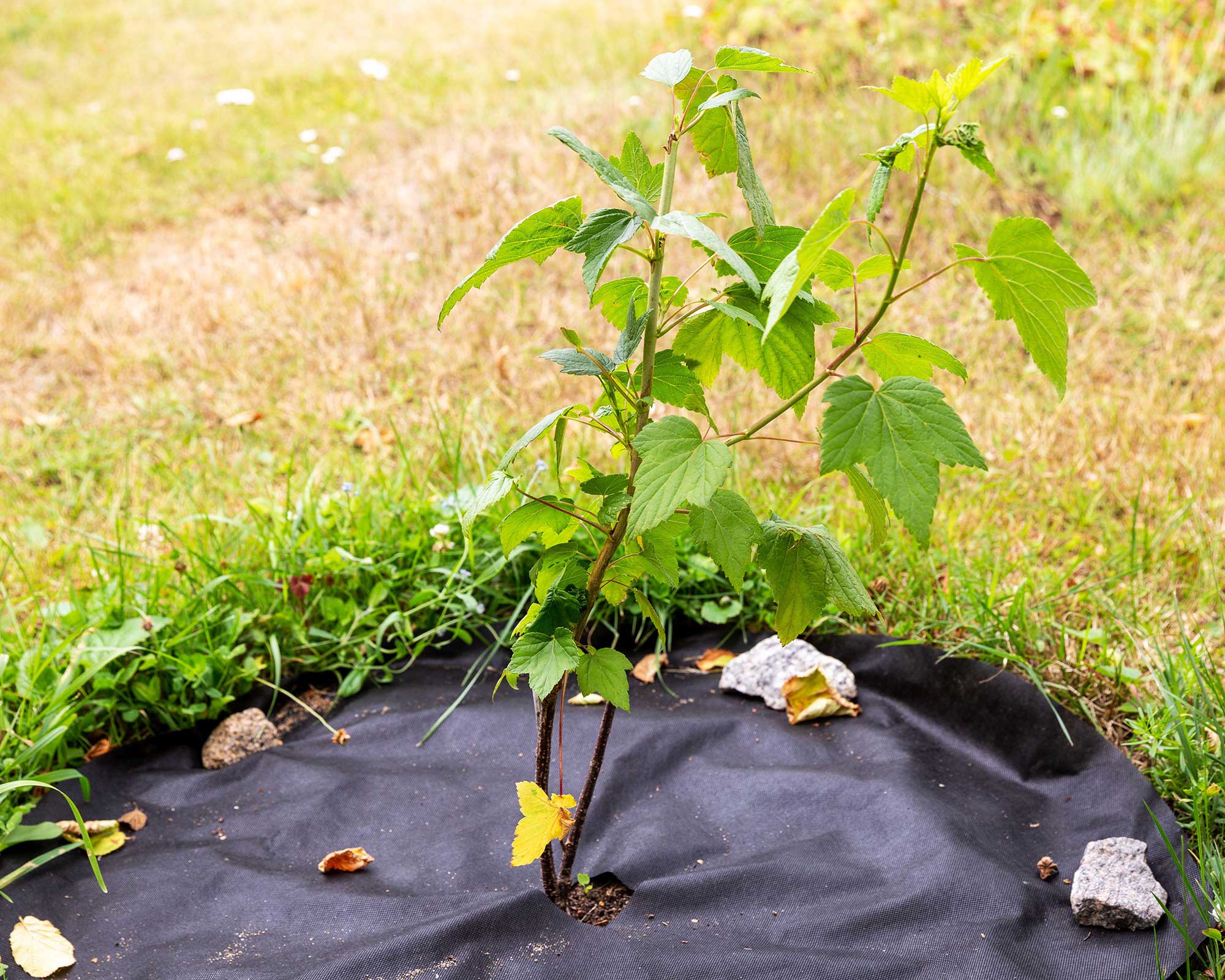
How to get the most from mulch
Biodegradable mulches need to be applied fairly thickly to be effective – between 2in (5cm) and 3in (8cm) deep is ideal. Remove all weeds first and water well if the weather has been dry. You can apply these mulches over a whole bed or just around the base of individual plants or trees – in which case, try to extend the mulch out so that it's the same diameter as the plant or the tree canopy. Avoid piling it up around the trunk of a tree though, as this can lead to decay.
If you're using landscape fabric or sheeting, there's no need to weed first, but do water well before laying it over the whole bed. Then, cut crosses at regular intervals in the fabric and pop your plants in through these.
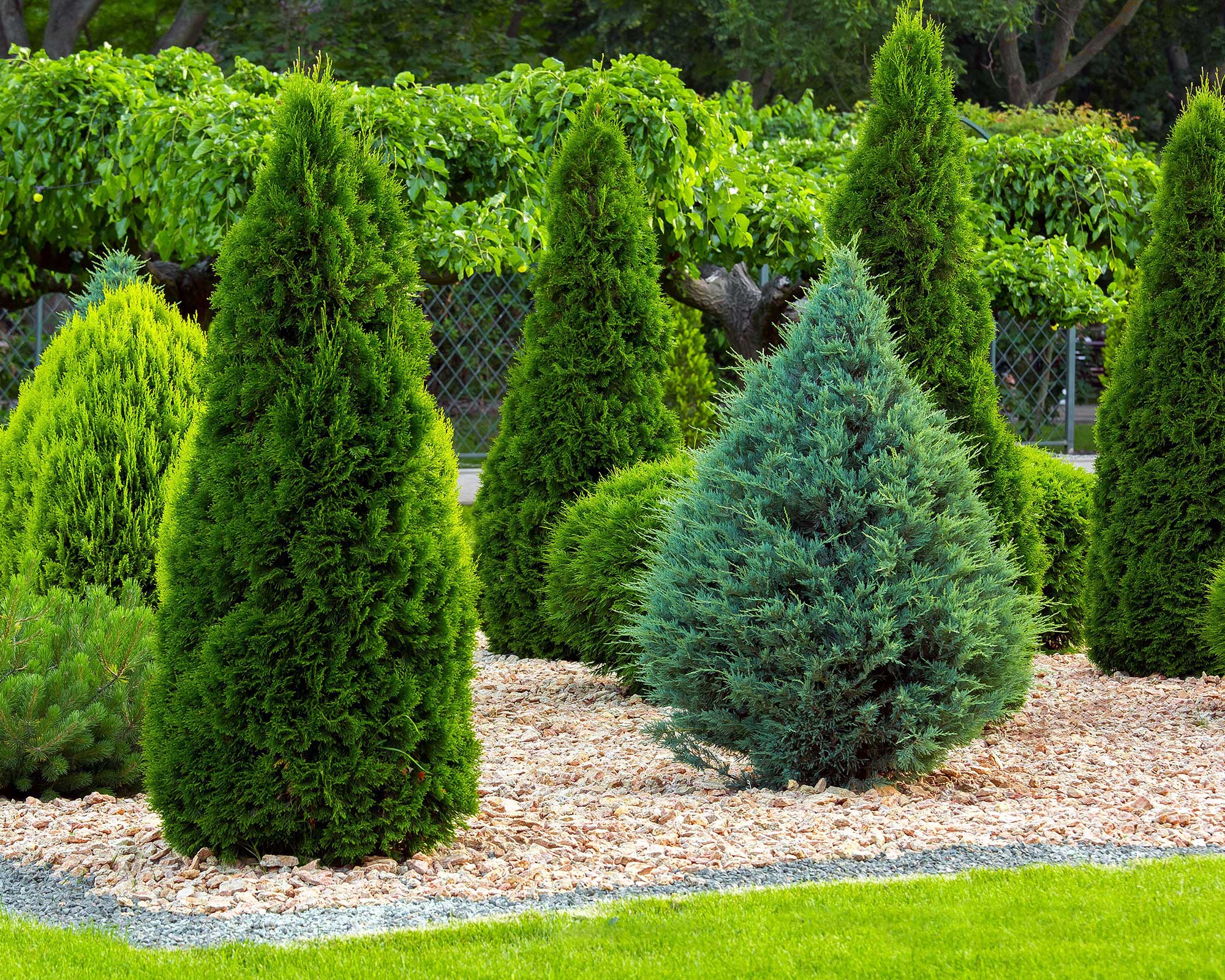
What type of plants are suitable for mulching?
In the garden, all shrubs, perennial and herbaceous plants, trees and fruit bushes will benefit from a biodegradable mulch. And in the veg patch, young vegetable and salad plants will grow much better if they don’t have to compete with weeds for water and nutrients when a layer of landscape fabric is used as a mulch to keep them at bay.
- Choose one or two of the best low maintenance shrubs then add a layer of mulch around the base for a super-easy gardening life.
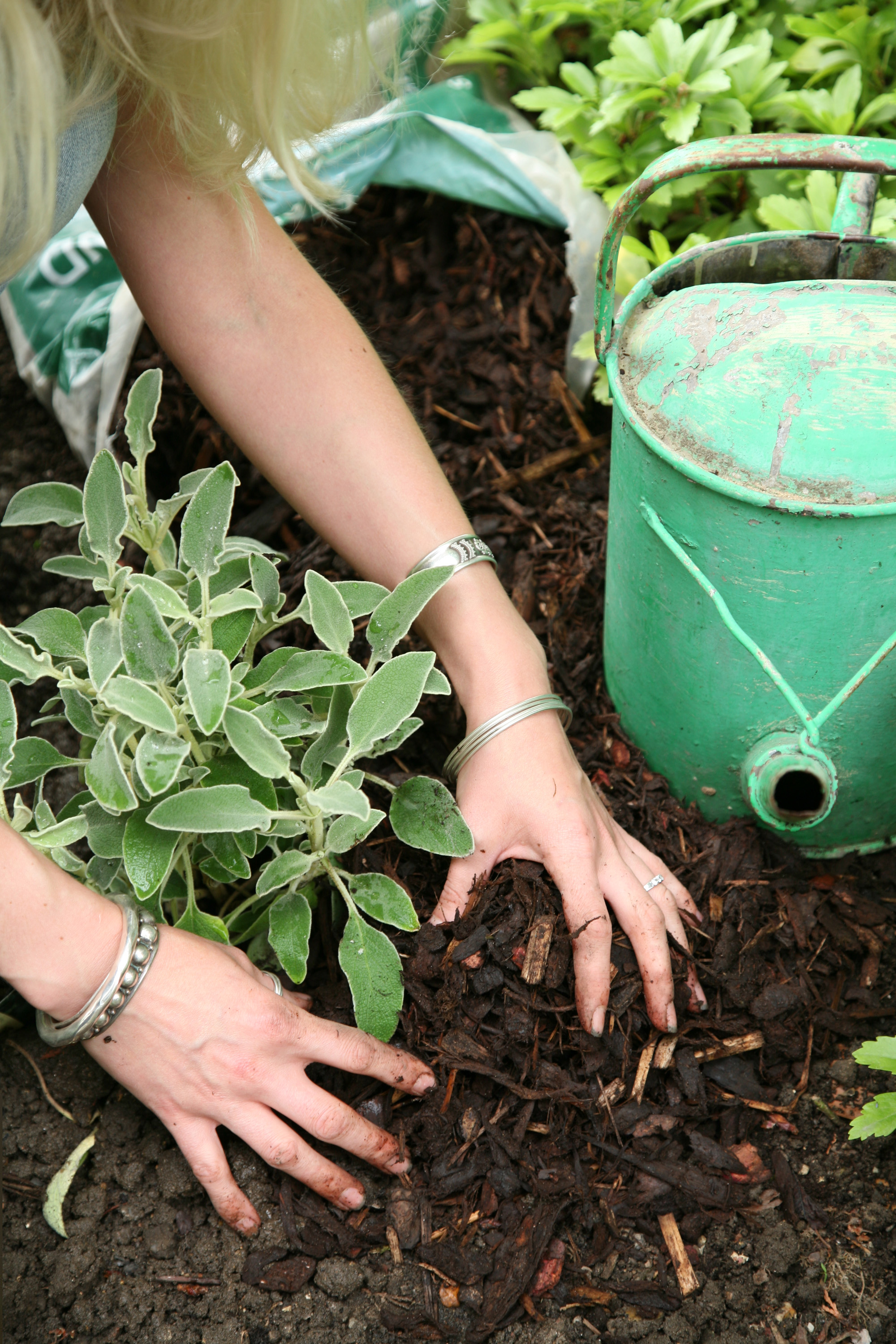
What time of year should you add mulch?
You can spread mulch around plants at any time of year. But, mid to late spring is ideal as annual weeds are yet to make an appearance, so you'll be smothering them before they have a chance to take hold.
Top up the mulch whenever you notice that it's starting to look a little sparse. In fall, spreading a thick layer of mulch around more tender plants like dahlias, gladioli, Verbena bonariensis and salvias means they're more likely to come through the winter unscathed.
There are lots more tips on how to grow dahlias in our dedicated feature.
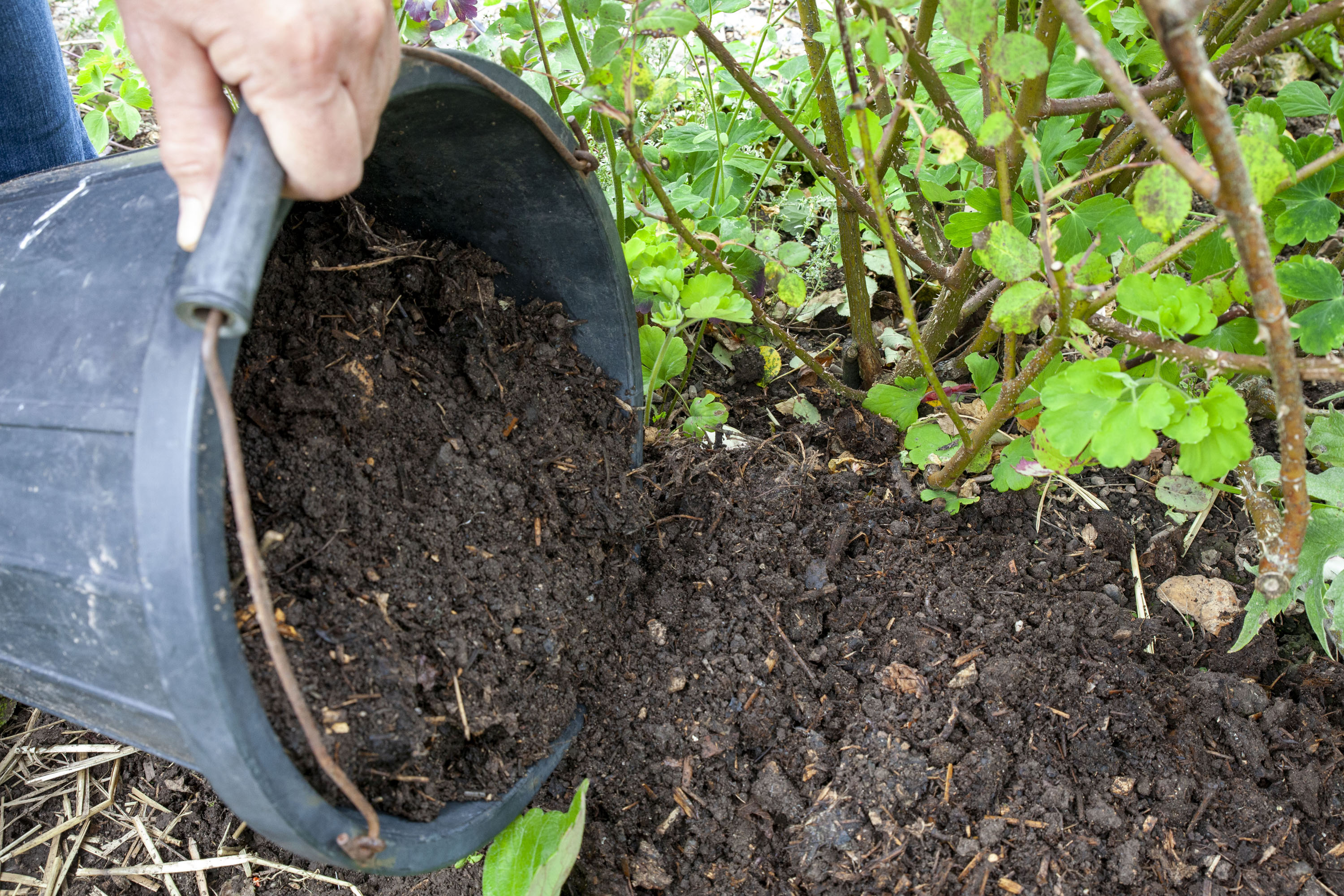
Avoiding problems with mulch
Although mulching is easy, there are a few things to bear in mind to reduce the risk of any problems:
- Be sure the ground is moist (by watering it if necessary) before adding any kind of mulch – laying it onto very dry soil will just exacerbate the problem.
- Although almost any organic material that would otherwise go to waste in the garden can be used as a mulch, avoid fresh lawn clippings (unless mulching your lawn) or newly pruned woody material – these take nitrogen from the soil as they decompose, leaving less for plant growth.
- In the first season, weeds often appear in the mulch itself as it may have already been harboring seeds. These weeds will be very easy to pull out, and then shouldn't trouble you again.
- Leave a narrow gap between the mulch and the stems of trees or shrubs – if it touches them, it may soften and weaken them, making them vulnerable to disease.
- Slugs can be a nuisance if they decide to use the mulch as a nice, warm place to shelter. Be vigilant and use slug control techniques to keep numbers down (beer in a shallow dish is one of the most effective methods).
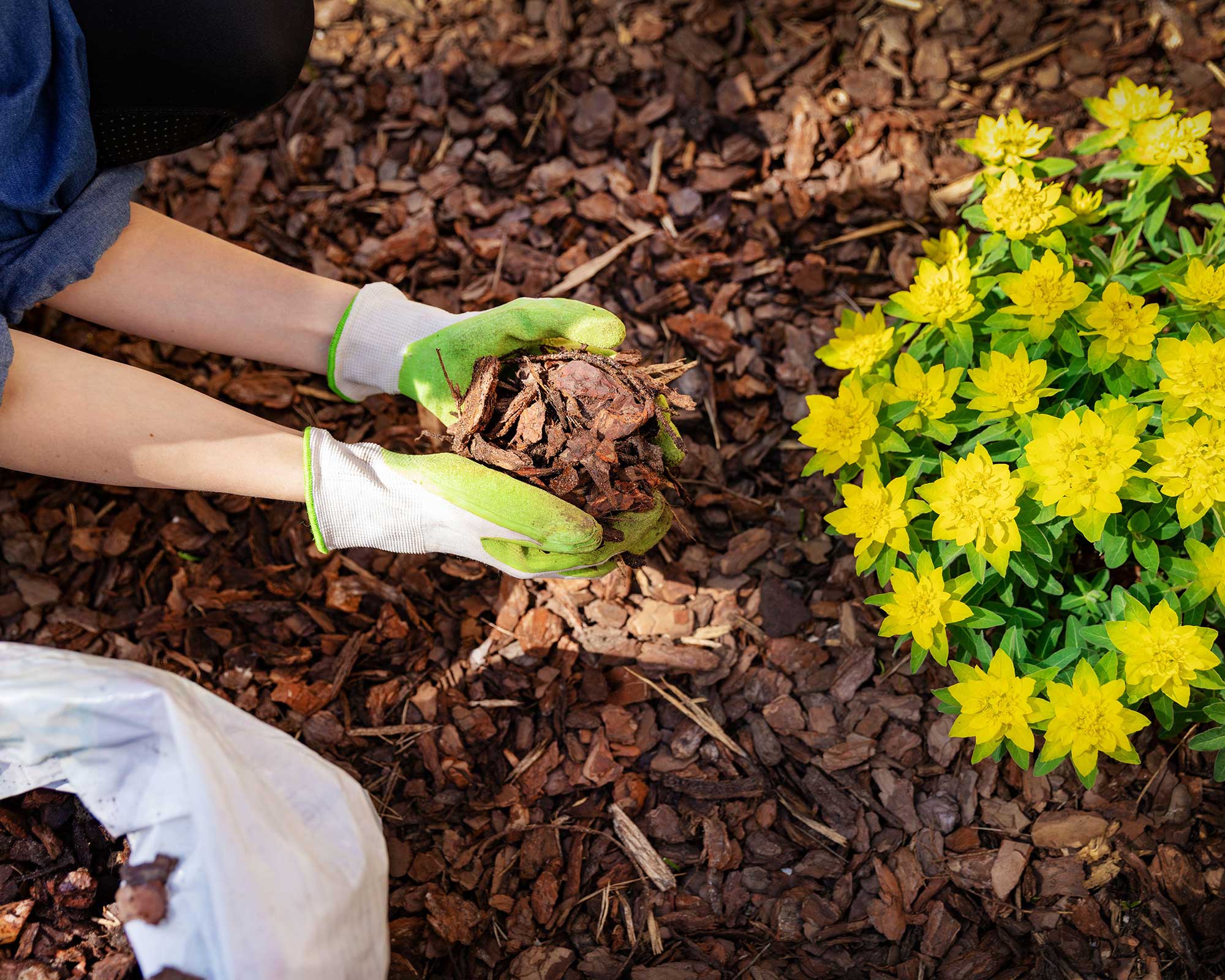
Taking mulching to the next level
The 'no dig' method of gardening, especially in the veg patch, is gaining an ever-increasing following among gardeners. The idea is that you simply cover all your soil with garden compost or well-rotted manure as a mulch each year, rather than laboriously digging it over as is traditional. This feeds the micro-organisms in the soil without disturbing them, giving you a productive garden that's much less labor intensive. And there are fewer weeds too, because the seeds harbored in the soil haven't been brought to the surface by digging.
The greatest exponent of the no-dig method is garden guru Charles Dowding. 'Soil that you cover with compost is then aerated and drained by well-fed worms and other soil life, and it looks gorgeous,' says Charles. 'You are then free to concentrate on sowing, planting and harvesting: gardening becomes quick, easy and super productive.'
We've got lots more advice on how to use this method in your garden in our no dig gardening guide.

Sarah is a freelance journalist and is lucky to be able to write about her two main passions: gardening and food. She recently took on an allotment too, and is really loving growing all her own fruit and veg then bringing it home to try out in new recipes for her food and gardening blog, A Cook's Plot.
